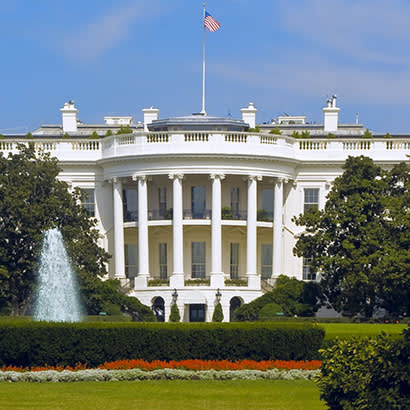
For an enhanced digital experience, read this story in the ezine.
Parks and recreation at the White House Conference on Hunger, Nutrition and Health
After more than 50 years, the White House will once again convene a national Conference on Hunger, Nutrition and Health this month. In reconvening this conference, the Biden-Harris administration welcomed partners from all sectors to participate in the development of a national strategy. On behalf of our members, NRPA contributed recommendations on how park and recreation agencies can help meet these challenges with innovative solutions.
To guide the conference’s discussions and national strategy, the administration established five pillars of discussion: improving food access and affordability, integrating nutrition and health, empowering all consumers to make and have access to healthy choices, supporting physical activity for all, and enhancing nutrition and food security research.
Park and recreation professionals — and the programs, services and spaces they provide — play a vital role in ensuring all people can thrive in the communities where they live, learn, work and play. At NRPA, we want to end hunger by making it easier for everyone — including urban, suburban, rural and Tribal communities — to access and afford food by expanding eligibility for and increasing participation in food assistance programs. Investing more reliably in parks and recreation and community-based organizations will make it easier for everyone to access and afford healthy and local foods nutrition education, food assistance programs, as well as safe, active transportation to grocery stores, farmers markets and other food distribution centers.
We want to empower all community members to make and have access to healthy choices, environments, workplaces and schools by investing in culturally appropriate public messaging and education campaigns that resonate with communities. We want our nutrition and food security policies informed by issues of equity, access and disparities, and supported by integrating nutrition and health, particularly in nutrition metrics, data collection, and research. We want to prioritize the role of nutrition and food security in overall health, including disease prevention and management, and ensure that our healthcare system addresses the nutritional needs of all people.
Parks, trails and green spaces offer physical and mental health benefits, so much so, that the Centers for Disease Control and Prevention’s Community Preventative Services Task Force (CPSTF) recommends park and trail infrastructure to increase physical activity. When combined with other health interventions, the CPSTF found that park and trail infrastructure increased the amount of moderate-to-vigorous physical activity by 17 percent. Officially recognizing the importance of parks in its public health recommendations is a step in the right direction.
As millions of people living in the United States continue to face barriers to health, now is the time for park and recreation professionals to elevate their voice. NRPA encourages our members to be active participants in shaping the administration’s national strategy and its areas of focus by lifting up stories of lived experiences with hunger, poverty or other barriers to health, and sharing recommendations on how to improve community health and well-being at its roots.
Please join us in spreading the word by tweeting @NRPA_news and @WhiteHouse with the hashtags #EndHungerNow and #PowerOfParks with your message. We look forward to working with the administration, Congress and our partners to address community health and well-being nationally and locally.
Asia Simms is NRPA’s Park Champions Initiative Specialist Intern. Dan McCarthy is NRPA’s Advocacy Manager.

